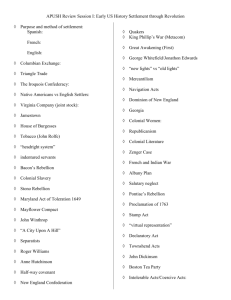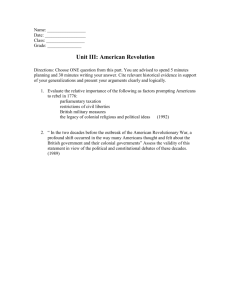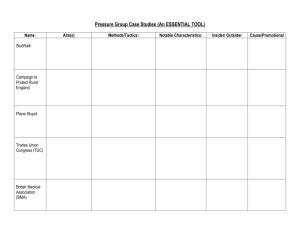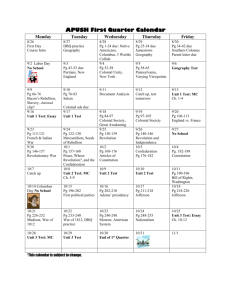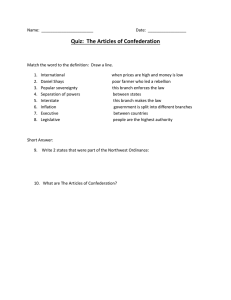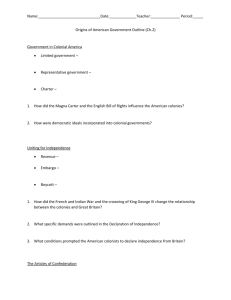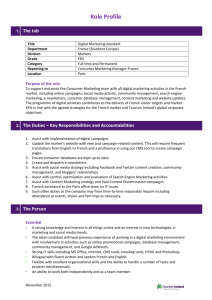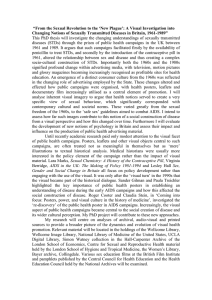The Enlightenment
advertisement
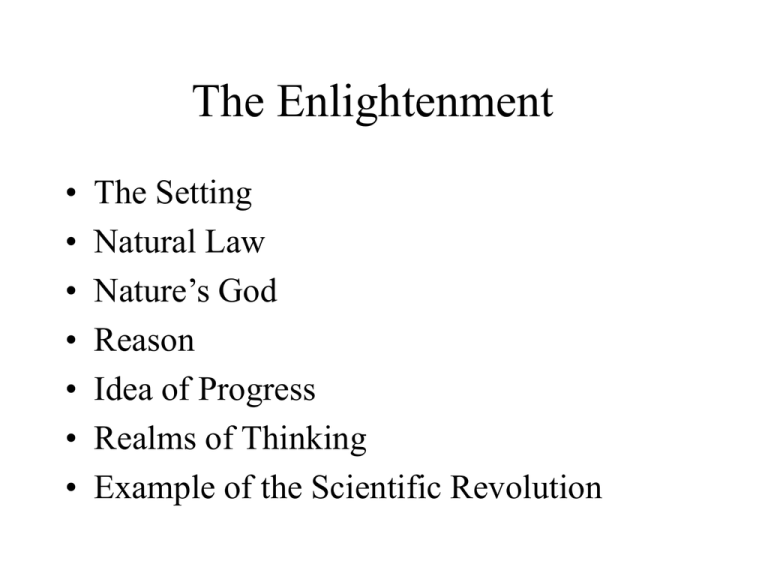
The Enlightenment • • • • • • • The Setting Natural Law Nature’s God Reason Idea of Progress Realms of Thinking Example of the Scientific Revolution Road to Revolt • • • • • • No Taxation without Representation Mercantilism Various Events Coercive Acts Lexington and Concord Colonial Debates: patriots, loyalists and opportunists Reluctant Revolutionaries • • • • • • Act of Rebellion and Treason Who were the leaders? Only ones? The Continental Congress George Washington’s role Colonial Divisions Early Campaigns Mobilization • • • • • • The British Empire Colonial Aims: Independence or Loyal Finances Military Preparedness Allies: slaves? Indians? Other nations? Public Opinion divided 1775-76 • • • • • • • Fortunes of War Thomas Paine’s Common Sense Republicanism: representative gov’t The Declaration of Independence Early state governments Feature in Constitutions The Articles of Confederation, 1781: The US Military Campaigns • • • • • • British Strategy Loss of New York Battle of Saratoga France’s Entrance Western and Southern Campaigns Yorktown The Other Americans • The Role of Women: At home and t/o the campaigns. • Voice of Abigail Adams • Slaves and Freedmen • The Plantation system • The Debates • Contributions Paris Peace, 1783 • • • • • The Map of North America Western boundry: Mississippi North: Great Lakes and Canada South: Florida and the Gulf The Atlantic Post War Blues • • • • • • Foreign Affairs: Brits, French and Spain Domestic Economy: Debt and Depression Shay’s Rebellion United States? Northwest Ordinance Gathering Storm The Articles of Confederation • • • • • • • The ratification and purpose Deficiencies Taxation, revenue and regulation Coercive Powers Legislative authority Mt Vernon and Annapolis Off to Philly
